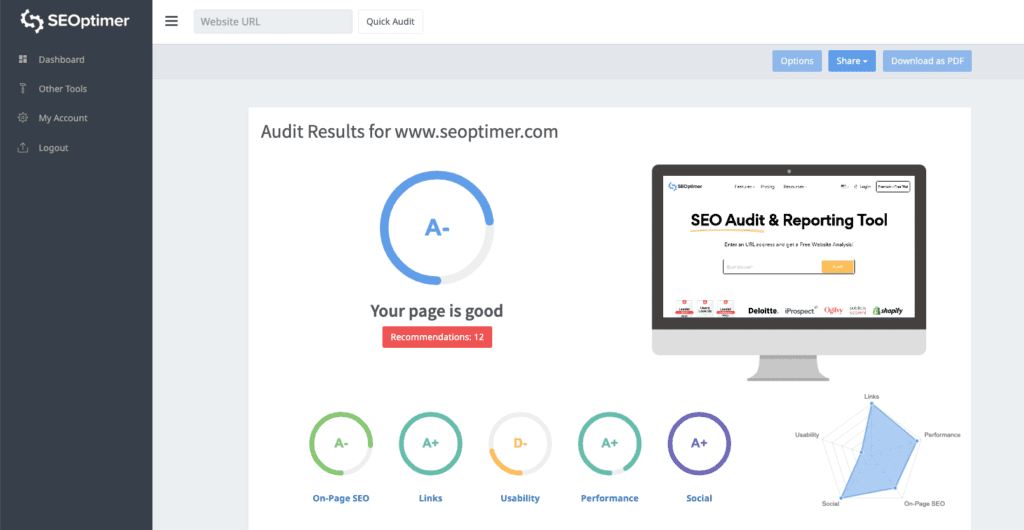Enhance Your Website’s Performance: The Impact of a Free SEO Audit
Understanding SEO Audits
An SEO audit comprehensively analyzes your website’s health and performance concerning various SEO factors. The process involves examining multiple aspects of your site, including technical SEO, on-page SEO, off-page SEO, and user experience. Conducting a thorough SEO audit can help identify areas where your website excels and areas that need improvement.
The main objective of conducting an SEO audit is to identify any obstacles that could be affecting your website’s ranking in search engine results pages (SERPs). Dealing with these concerns can enhance the visibility of your website, attract additional organic traffic, and ultimately boost conversions.
Benefits of a Free SEO Audit
A free SEO audit offers several key benefits that can significantly impact your website’s performance. Firstly, it provides a detailed overview of your site’s current state, allowing you to understand its strengths and weaknesses. This insight is essential for developing a targeted and effective SEO strategy.
A free SEO audit also helps you identify critical issues affecting your site’s rankings. These issues could include broken links, duplicate content, slow page load times, or mobile optimization problems. Addressing these issues can enhance the user experience, a crucial factor for search engine rankings.
Finally, a free SEO audit can save you time and resources by providing a clear roadmap of what needs to be addressed. Rather than trying to guess what might be wrong with your site, an audit gives you a precise list of issues to tackle, making your SEO efforts more efficient and effective.
Common Issues Identified in SEO Audits
SEO audits often reveal many common issues that can negatively impact your site’s performance. Some of the most frequently identified problems include:
- Technical Issues: These can include problems with your site’s architecture, server errors, and issues with indexing and crawling.
- On-Page SEO Issues: Common on-page issues include missing or duplicate meta tags, poor keyword usage, and lack of header tags.
- Off-Page SEO Issues: These often involve the quality and quantity of backlinks pointing to your site and your site’s authority.
- User Experience Issues: Factors such as slow page load times, poor mobile optimization, and unclear navigation can significantly impact user experience.
- Content Issues can include thin or duplicate content, lack of keyword optimization, and outdated or irrelevant content.
Identifying and addressing these issues through a thorough SEO audit can help improve your site’s overall performance and rankings.
Essential Components of an SEO Audit
It’s important to cover several key components for an effective SEO audit. These include:
- Technical SEO involves analyzing your site’s technical aspects, such as site architecture, XML sitemaps, robots.txt files, and server response codes. Ensuring search engines can efficiently access and categorize your website is essential for achieving SEO goals.
- On-Page SEO: This component focuses on optimizing individual pages on your site. It includes meta tags, header tags, keyword optimization, and internal linking structure.
- Off-Page SEO: Off-page SEO involves building your site’s authority through high-quality backlinks. It also includes social signals and online reputation management.
- Content Quality: It is essential to analyze the quality and relevance of your content. This includes checking for duplicate content, ensuring keyword optimization, and updating outdated content.
- User Experience: Page load time, mobile-friendliness, and site navigation significantly affect SEO. Improving user experience may result in increased engagement and improved search engine rankings.
Utilizing these tools effectively can streamline your audit process and provide deeper insights into your site’s SEO health.

Why Regular SEO Audits are Crucial
Performing regular SEO audits is crucial for enhancing and maintaining your website’s performance. Search engine algorithms constantly evolve, and staying updated with the latest changes is crucial for staying competitive.
Regular audits help you identify and address issues before they become significant problems. By ensuring your site is optimized, you can maintain its high ranking in search results, attract more organic traffic, and boost conversions.
Furthermore, regular SEO audits allow you to track the effectiveness of your SEO strategies over time. You can enhance your website’s performance and outperform competitors by analyzing important data and making informed decisions.
Implementing SEO Audit Recommendations
Once you’ve completed an SEO audit and identified areas for improvement, it’s essential to implement the recommendations effectively. Rank the problems according to how they affect your website’s performance and focus on resolving the most serious ones first.
Develop a clear action plan that outlines the steps needed to resolve each issue. Delegate responsibilities to team members, establish deadlines, and monitor advancements to ensure prompt enhancements.
Finally, monitor the results of your efforts to see how they impact your site’s performance. Use tools to track key metrics and make data-driven adjustments.
Concluding Thoughts
Enhancing your website’s performance through a free SEO audit is essential for boosting your search engine standings and increasing organic website visitors. By understanding the critical components of an SEO audit, recognizing typical problems, and using effective resources, you can create a strong SEO plan that produces lasting outcomes.
Regular audits and continuous optimization are essential for staying competitive in the ever-evolving digital landscape. By implementing the recommendations from your SEO audits and monitoring your site’s performance, you can ensure that your website remains optimized, visible, and successful.






